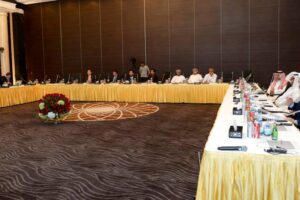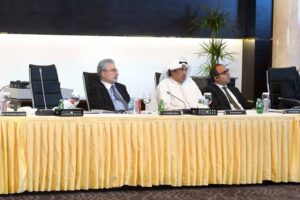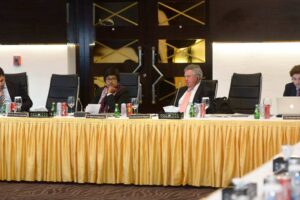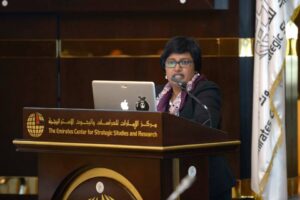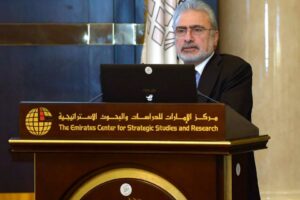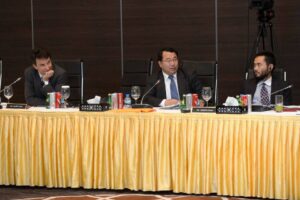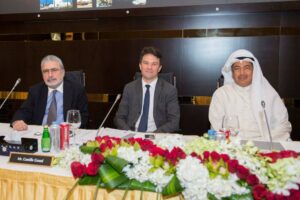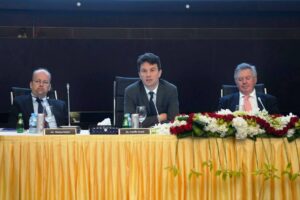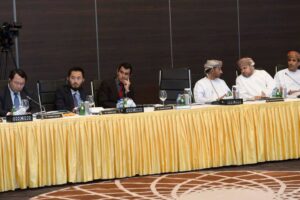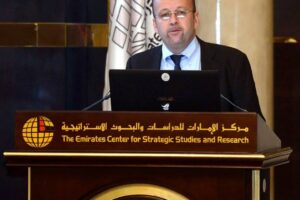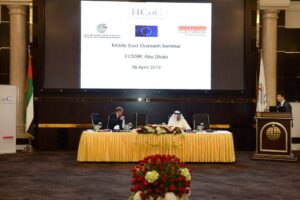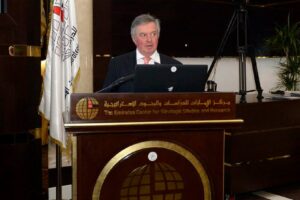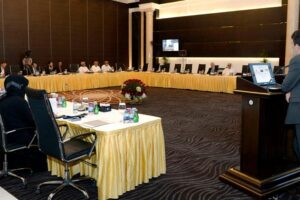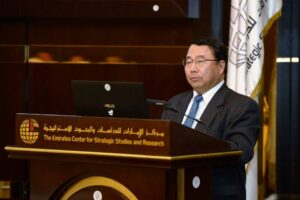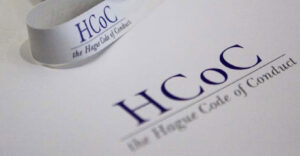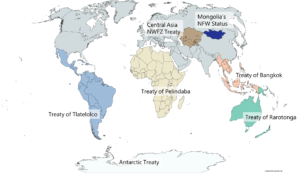Middle East outreach seminar on HCoC 2014
16 April 2014
On 16 April 2014, the FRS organised, on behalf of the European Union, a regional outreach seminar to raise awareness of ballistic missile proliferation and encourage discussions on perspectives to better address the ballistic missile proliferation threat at a regional level. This event was held in collaboration with the Emirates Centre for Strategic Studies and Research (ECSSR) in Abu Dhabi.
AGENDA
WELCOMING REMARKS
- Camille GRAND, Director, Foundation for Strategic Research
- Thomas PEYKER, Chargé d’Affaires, Delegation of the E.U. to the U.A.E.
- H.E. Dr. Jamal Sanad AL-SUWAIDI, Director General, Emirates Centre for Strategic Studies and Research
I/ ASSESSING THE CURRENT & FUTURE TECHNOLOGICAL TRENDS IN BALLISTIC-MISSILE PROLIFERATION IN THE MIDDLE EAST
- Camille GRAND, Director, Foundation for Strategic Research
- Developments in ballistic-missile technology
- The relationship between space-launch and ballistic-missile technologies
- Missile-defence systems and their impact on the regional strategic environment
II/ REGIONAL PROLIFERATION ISSUES
- Dr. Samir AL-FARAJ, Director, Kuwait Centre for Strategic Studies
- Dr. Abdullah TOUKAN, President and Chief Executive Officer, Strategic and International Risk Assessment Centre
KEY ISSUES:
- The current regional state of play in the ballistic-missile field
- Issues and challenges arising from this context
- Proliferation rationales in the Middle East


III/ THE HCoC AGAINST THE PROLIFERATION OF BALLISTIC MISSILE: UNIVERSALITY, VISIBILITY & IMPLEMENTATION
- Hidehiko HAMADA, Deputy Permanent Representative, Permanent Mission of Japan to the International Organisations in Vienna; Representative of the HCoC Chair
- Jérémie HAMMEDI, Expert, Missile and Space Issues, European External Action Service
- Dr. Rajeswari RAJAGOPALAN, Senior Fellow, Observer Research Foundation
KEY ISSUES:
- Presentation by current HCoC Chair of progress and challenges relating to HCoC universality and visibility
- The EU Strategy to combat the proliferation of WMD delivery systems; EU support for HCoC
- The role of the Code in regional dynamics
- Possible means of developing the Code
CONCLUDING REMARKS
- Camille GRAND, Director, Foundation for Strategic Research

